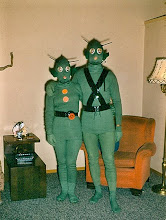This week I decided to read Walter Wangerin Jr.'s The Book of the Dun Cow for several reasons. First, and most importantly, based upon the recommendation of several people I trust implicitly in terms of book taste. Secondly because it won the National Book Award, and on the cover (front and back) is compared to The Lord of the Rings and Watership Down in terms of quality and importance. Needless to say, I was very excited to begin my reading, and was not at all disappointed.
I was deeply impressed by the incredible depth of characters and relationships in this text. I've read other books with anthropomorphic animals (Redwall, Poppy, The Lion, the Witch and the Wardrobe, etc.), and never before have I been so completely blown away by the way an author blended both the "animal-ness" of his characters with the "human-ness" that makes these such compelling stories. Rather than surrender the characters to one pigeon-holed, symbolic role (i.e. Animal Farm's characters), Wangerin created a world in which roosters could absolutely be both proud and kind, both skilled and empathetic leaders as well as flawed and imperfect individuals. Chauntecleer's strength as a protagonist, and the reason I found him to be such a sympathetic character, was not because he could easily handle any situation or because of any one quality, but that his innate "rooster-ness" and his undeniable "human-ness" simultaneously made him a powerful leader and an imperfect person. Rather than lean too heavily on one quality or the other (animal or human) Wangerin puts them into conversation with one another, and provides us with a powerful and singularly memorable protagonist.
I knew that I loved Chauntecleer, and would absolutely love this book, from the moment I read this passage in which the variety of Chauntecleer's many crows is expressed:
...there was a whole set of crows which he used always at certain special hours during the day. These did come in due time; and these were called the "canonical crows." They told all the world--at least that section of the world over which he was Lord--what time it was, and they blessed the moment in the ears of the hearer. By what blessing? By making the day, and that moment of the day, familiar; by giving it direction and meaning and a proper soul. For the creatures expected his canonical crows, and were put at peace when they heard them. "Yes, yes," they would say, "the day is our day, because Chauntecleer has made it ours." That they would say in the morning, grateful that by his crow the day should hold no strangeness nor fear for them. And at noon: "The day's halfways over; the best part is still coming." It was a comfort to be able to measure the day and the work in it. (12)Reading this book over the last week I've been thinking about animals a great deal. To what extent do these kinds of animal stories speak to a deeper longing we as humans have to "know" animals--to understand them beyond their biology and outward behavior. This quote seems to speak to that longing, especially in terms of a kind of hope that animals act on more than simple survival instinct--a desire for animals to have their own lives and hopes and small pleasures. Even as children we seem to want this; I remember distinctly crying over a dead bird not only because of his death but because he wouldn't be able to go home to his family. Wangerin's Coop establishes a microcosm in which we can observe, and participate, in the complex and beautiful lives of these creatures. A world in which every day is more than simply a ritual of food-gathering for survival, but a rich community of weddings and births, loves and small joys.
This book remains with me now, and I certainly have more to say about it. Yet I find myself held back a bit by my inability to articulate accurately my feelings towards the latter half of the text. The events which transpired between Chauntecleer, Mundo Cani and the Wyrm (and the Dun Cow herself even) resonated with me to such an extent that Mundo Cani's great act near the end of the book (I won't spoil anything) left me in tears. As I continue with other activities and readings over this weekend and the next week, I may come back to this post and extend my thinking as my own understanding and ideas complicate and develop. Suffice it to say, I was stunned and deeply moved by Wangerin's text, and I will add the sequel to this book The Book of Sorrows, to my reading list for this project. Look for it in the future!
I usually end my BaW posts with images for my texts...but as of yet no movie has been made for The Book of the Dun Cow. Instead...a rooster.







No comments:
Post a Comment